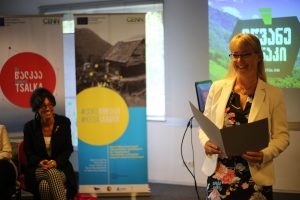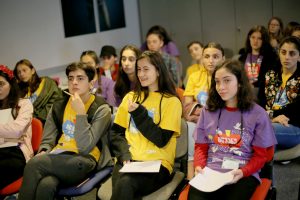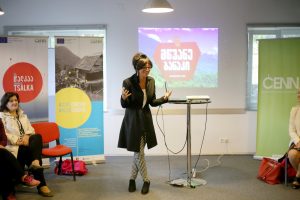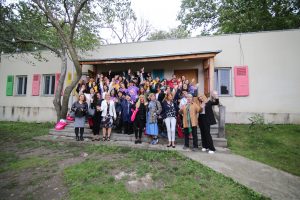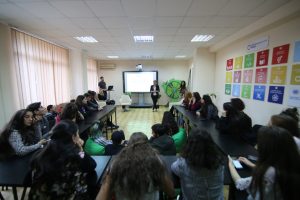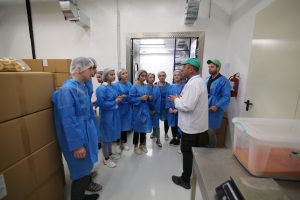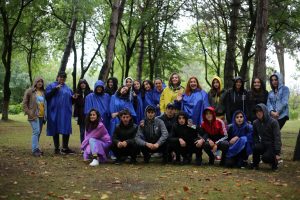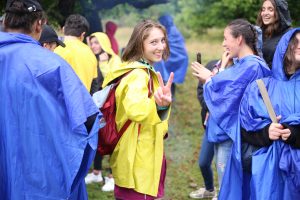From 5-13 September, Bulachauri Green Center hosted the 2019 Green Camp for Young Leaders and Innovators. The EU-supported camp was organized by CENN. The camp participants were selected via an open application process from Keda and Tsalka municipalities. The intensive educational program of the Green Camp aimed at raising the awareness of the younger generation about environmental protection, human rights, sustainable development and science and creating new possibilities for future leaders.
Environmental specialists from CENN conducted classes on Sustainable Development Goals, climate change, sustainable management of forest resources, sustainable waste management and circular economy, water, sanitation and hygiene (WaSH) issues, natural disaster risks and mitigation measures. Within the camp, workshops were conducted about human rights, active citizenship, and effective presentation structure and public speaking techniques. In addition, camp participants learned about the European LEADER approach to rural development and the work conducted by Local Action Groups in Georgia.
Members from the International Women’s Association Georgia visited the EU-supported Green Camp and shared their experiences with the camp participants and discussed topics such as environmental issues, technologies, education, and career development. Mrs. Mette Hartzell, an IWA member and spouse of Carl Hartzell, the EU Ambassador to Georgia, addressed the camp participants and read a letter addressed by the Ambassador to the camp participants.
Within the framework of the camp, participants visited the Caucasus Organic Fruits factory, where the specialists from the company introduced its technologies and various stages of dry fruits production. The site visits continued to GWP’s water filtering facility, where leading engineers from the company hosted a tour showcasing the complete water treatment cycle. The last site visit was to the Environmental Information and Education Center, where the center’s director, Tamar Aladashvili, talked with the students about environmental protection, environmental human rights, and introduced the rules and terms of requesting public information.
The Green Camp participants also became acquainted with the principles of outdoor ethics and their recreational impact on nature. In order to translate their newly gained knowledge into practice, camp participants hiked around Sabaduri Forest and Iori Gorge. Together with experienced guides and camp leaders, participants had the chance to observe natural resources, flora and fauna in the valley.
A specialist from ForSet delivered a session about colorful data visualization. Also, a representative from American Councils for International Education informed the participants about international, cultural-educational exchange programs.
Upon completing the camp, the participants will join the Green Camp Alumni Network and will be able to participate in future opportunities within CENN’s environmental youth initiatives.
The Green Camp was made possible with EU support under the European Neighborhood Program for Agriculture and Rural Development – ENPARD Georgia. The camp was organized by two ENPARD projects – EMBRACE Tsalka and Keda LEADER, implemented by CENN.
